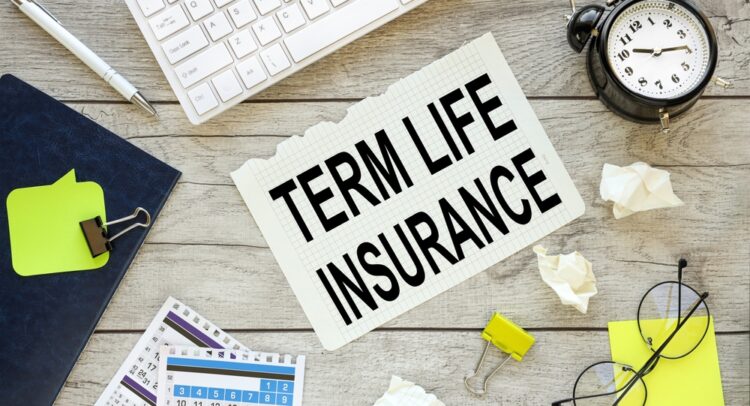When you buy term life insurance, you only pay a certain amount each month for a certain period, called the ‘term’. This type of insurance is designed to protect your finances for a set period, so it’s a good option for people who only need short-term coverage. It is especially popular among people who need insurance to cover certain financial obligations, such as mortgages, college tuition, or other bills that disappear over time.
Understanding the Basics of Term Life Insurance
Term life insurance does not accumulate cash value like whole life insurance. You can receive a death benefit. This is an amount that is paid to your family members if you die during the term of the policy. The term can vary from one to thirty years and at the end of the term you have the option to repeat or change the policy. This protection is especially useful in the years when you have to pay a lot of bills.
Low Cost and Strong Adaptability
One of the advantages of term life insurance is that it is not too expensive. Because it only covers a certain period and does not contain an investment component, the premiums are usually lower than with permanent life insurance. Term life insurance also gives policyholders options in terms of coverage duration and amount of coverage, so they can create a plan that suits their unique financial needs and life situation.
Financial Security for Dependents
Term life insurance is a great way to ensure that your loved ones can pay their bills after you pass away. If you die, it is possible to get a lot of money from this insurance. It can help pay for lost wages, debts, current expenses, and future needs such as children’s education, without having to pay the higher premiums that come with permanent life insurance.
Conversion Options and Extension Options
There are generally two options for term life insurance: renewal or conversion. If you can renew your policy at the end of the first term, you can usually keep the policy without a medical exam, even if the premiums are higher. The conversion option allows policyholders to switch to permanent insurance that provides them with coverage forever and allows them to build cash value.
Choose the Right
The type of life insurance that suits you best depends on your age, current financial situation, and long-term financial goals. Term life insurance is best for people who need coverage for a specific period or amount. It provides people with a safety net during difficult economic times and when their families are most likely to suffer harm. Before choosing term life insurance, consider how long you will need it and how much money you will need to protect your loved ones.
Conclusion
People who don’t need lifetime coverage can gain peace of mind and financial security through term life insurance, which is an inexpensive option. Term life insurance remains a popular choice for those who want to ensure their family has enough money in the future. It is easy to obtain, does not cost much, and provides good protection in difficult times.
FAQs
1. What does term life insurance mean?
A life insurance policy that covers you for a specific period, such as 10, 20, or 30 years, is called term life insurance. If the policyholder dies during this period, the policy’s death benefit is paid to the beneficiaries. The fact that it has no cash value makes it an easy and cheap way to protect your money.
2. Who should consider purchasing term life insurance?
Term life insurance is best for people who need coverage for a certain period because they have huge financial responsibilities during that time. This includes parents with young children, tenants with a mortgage, and anyone who wants to be sure that their loved one is financially cared for in the event of a sudden death.
3. How do I determine the term of my policy that suits me best?
The term of your life insurance policy should correspond to the time when you plan to have the most money-related obligations. For example, you can choose a period that lasts as long as your mortgage is paid off, or until your children have finished school and need to become financially independent.
4. If my term life insurance contract expires, can I renew it?
At the end of the term, most term life insurance policies offer you the option to renew. However, if you renew your policy, your rates may increase because they are recalculated based on your age at the time. Depending on the rules set by the insurance company, some policies may require a medical examination before renewing the insurance.
5. Can I change my term life insurance to whole life insurance?
Yes, many term life insurance policies have a feature that allows you to change your policy from a term policy to a permanent (lifetime) policy without a medical exam. This can help if your health is deteriorating and you want to make sure you keep your benefits.
6. What happens if I die before my term life insurance expires?
You will not receive any money from your term life insurance policy if you die before the policy expires. People who buy term life insurance cannot get their payments back unless they buy the return on a premium term life insurance policy, which is typically more expensive. This is because term life insurance policies do not have savings or cash value features.
7. How much does whole life insurance cost compared to term life insurance?
Life insurance policies that only pay out upon death are generally much cheaper than whole life insurance because no cash value is built up. The premiums are low, making it an affordable option that offers good security in times of heavy debt.


